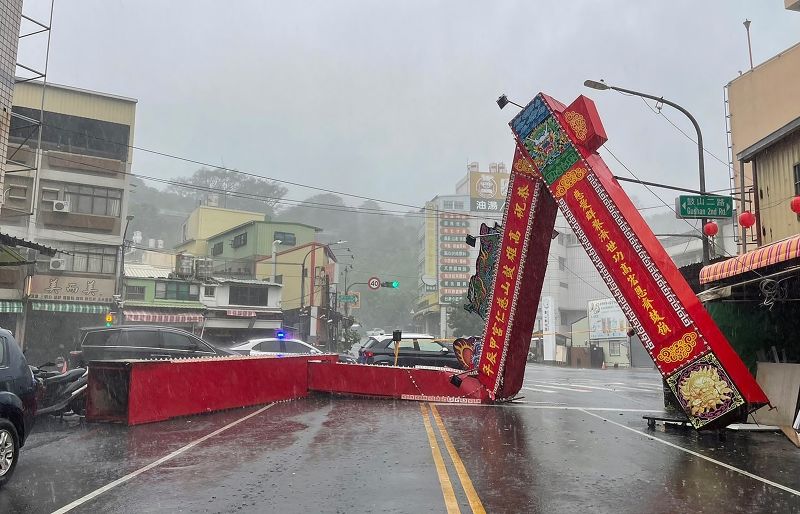Two people have died after a typhoon slammed into southwestern Taiwan, deluging the major port city of Kaohsiung with heavy rain and forcing the island to shut down for a second day.
With winds of up to 135 kilometers per hour (85 miles per hour), Typhoon Krathon made landfall along southern Taiwan shortly after noon on Thursday, the equivalent of a Category 1 Atlantic hurricane.
Two people died and 219 injuries have been reported, according to Taiwan’s Central Emergency Operations Center, adding that one person is also missing.
One was a 66-year-old driver hit by falling rocks. The other was a 70-year-old man who fell while trimming a tree during the typhoon, according to the center.
For several hours before making landfall, Krathon moved slowly along the southern coast. In previous days it had hovered between Taiwan and the Philippines as a Category 4 equivalent, with Taiwan President Lai Ching-te warning of “catastrophic damage.”
While the storm has since weakened, it has battered Taiwan with a deluge, forcing the closure of schools and the stock market earlier this week. Hundreds of flights have been suspended, and as of 3 p.m. close to 100,000 households faced power outages, according to the Ministry of Economic Affairs.
A wide swath of 250-500 mm (10-20 inches) with isolated totals over a meter (40 inches) have occurred from Krathon. Additional rainfall of 250 – 500 mm (10-20 inches) are possible from Krathon as it meanders over and near Taiwan.
Schools and offices were once again closed across Taiwan on Thursday. More than 38,000 Taiwanese soldiers are on standby to help in case of emergencies.
Kaohsiung officials warned of the impact of Krathon’s slow pace. “If it passes very slowly, and even stops at Kaohsiung and the Tainan areas, it could lengthen its damage on Kaohsiung,” mayor Chen Chi-mai told reporters on Thursday.
“Please avoid going out,” he added.
University student Liao Shian-rong, 24, told Reuters that he traveled from Taipei to Kaohsiung to chase the storm, calling it a once-in-a-lifetime opportunity.
“We are being hit by the eyewall now and will enter the eye soon,” he said, filming the storm from a hotel lobby.
Footage posted by users on social media platform Threads showed fierce winds had toppled motorcycles and scaffolding structures, ripping off roofs.
The storm, known in the Philippines as Julien, has already lashed that country’s northernmost islands, prompting evacuations and severe flooding in coastal communities.
Nearly 23,000 families in three regions have been affected by the storm, the Philippines’ national disaster agency said Tuesday, according to the Philippine News Agency.

